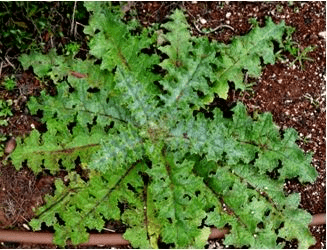IN VITRO GENOTOXICITY OF THREE PLANTS FROM ASTERACEAE FAMILY IN HUMAN LYMPHOCYTES CULTURES
Keywords:
Achillea, Centaurea, human lymphocytes cultures, karyotype, mitotic index (MI), OnopordumAbstract
Background: Onopordum carduiforme, Centaurea verutum, and Achillea santolina are medicinal plants grown in Syria and commonly used in traditional medicine. Such as antibacterial, antioxidant and anticancer properties. However, the genotoxic effects of these plants have not been studied.
Aim and objective: the aim of this study was to evaluate the genotoxic effects of hydroethanolic extracts of these plants on human lymphocyte cultures model by evaluating the cell proliferation, determination of mitotic index (MI), and their effects on chromosomes.
Methods: the hydroethanolic extracts of the aerial parts of the three plants were extracted using an Ultrasonic bath. Then the genotoxic effects of hydroethanolic extracts of these plants on human lymphocyte cultures was conducting by determination of mitotic index (MI).
Results: the results showed that all three plants decreased non-significantly the mean of mitotic index in comparison with negative control (normal MI) (p>0.05) at concentrations (1, 3, 5 mg/ml) and the mitotic index values ranged was between (2.25±0.07 and 3.3±0.28). However, C. verutum showed the lowest mitotic index (3±0.14 at 1 mg/ml) and (2.25±0.07 at 5 mg/ml), and did not induce chromatid or chromosome breaks or gaps.
Conclusion: these preliminary results on cytotoxicity and mutagenicity of these plants provide valuable information about the safety of using them in alternative medicine.

Peer Review History:
Received: 3 October 2021; Revised: 5 November; Accepted: 12 December; Available online: 15 January 2022
Academic Editor: Dr. A.A. Mgbahurike , University of Port Harcourt, Nigeria, amaka_mgbahurike@yahoo.com
, University of Port Harcourt, Nigeria, amaka_mgbahurike@yahoo.com
Reviewers:
 Ahmad Najib, Universitas Muslim Indonesia, Makassar, Indonesia, ahmad.najib@umi.ac.id
Ahmad Najib, Universitas Muslim Indonesia, Makassar, Indonesia, ahmad.najib@umi.ac.id
 Dr. Dennis Amaechi, MrsFoluBabade Mini Estate , Flat 5 by Old Soldiers Quarter, Sabongari/Bwari, Abuja- Federal Capital Territory, Nigeria. amaechitoexcel@yahoo.com
Dr. Dennis Amaechi, MrsFoluBabade Mini Estate , Flat 5 by Old Soldiers Quarter, Sabongari/Bwari, Abuja- Federal Capital Territory, Nigeria. amaechitoexcel@yahoo.com
 Dr. Sangeetha Arullappan, Universiti Tunku Abdul Rahman, Malaysia, sangeetha@utar.edu.my
Dr. Sangeetha Arullappan, Universiti Tunku Abdul Rahman, Malaysia, sangeetha@utar.edu.my
Downloads

Published
How to Cite
Issue
Section

This work is licensed under a Creative Commons Attribution-NonCommercial 4.0 International License.









 .
.